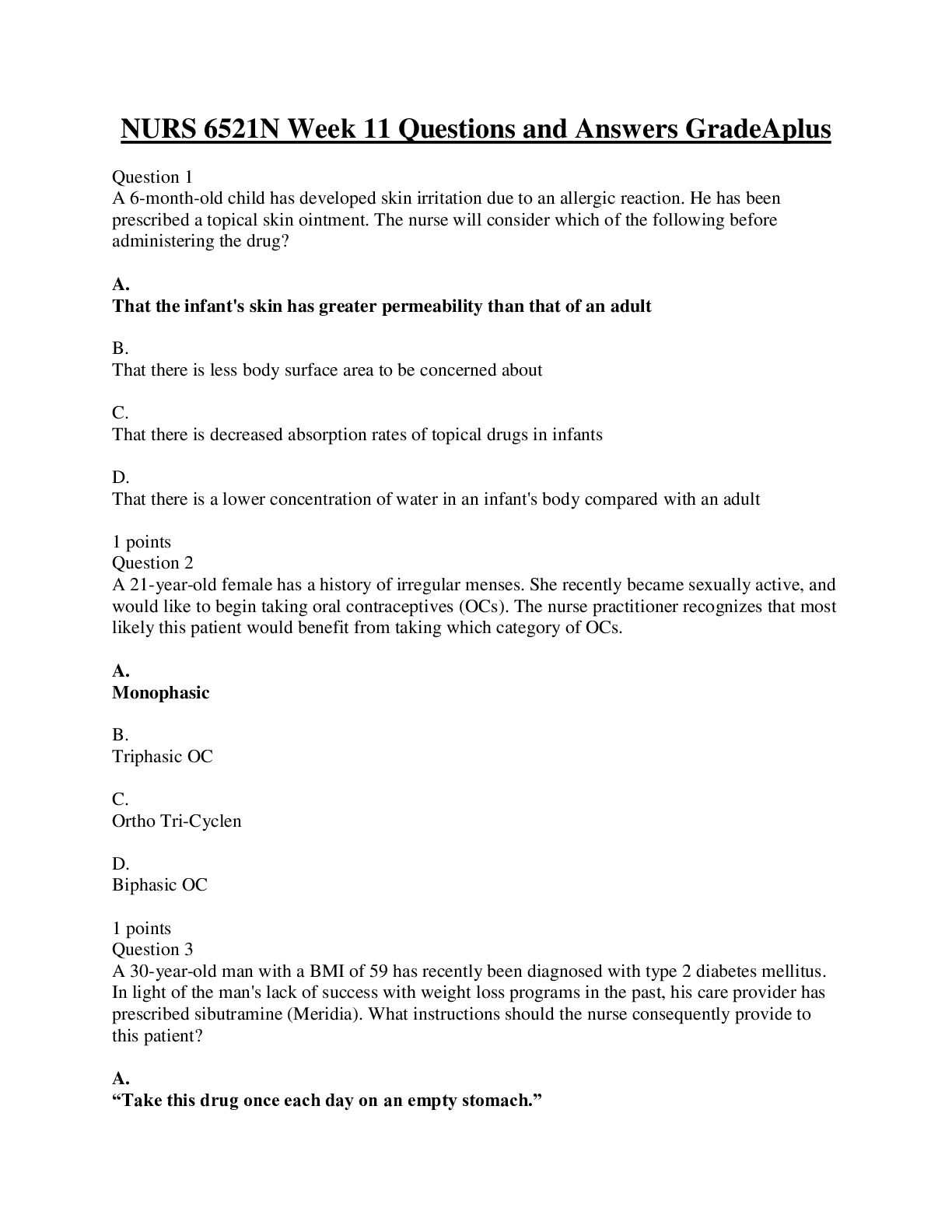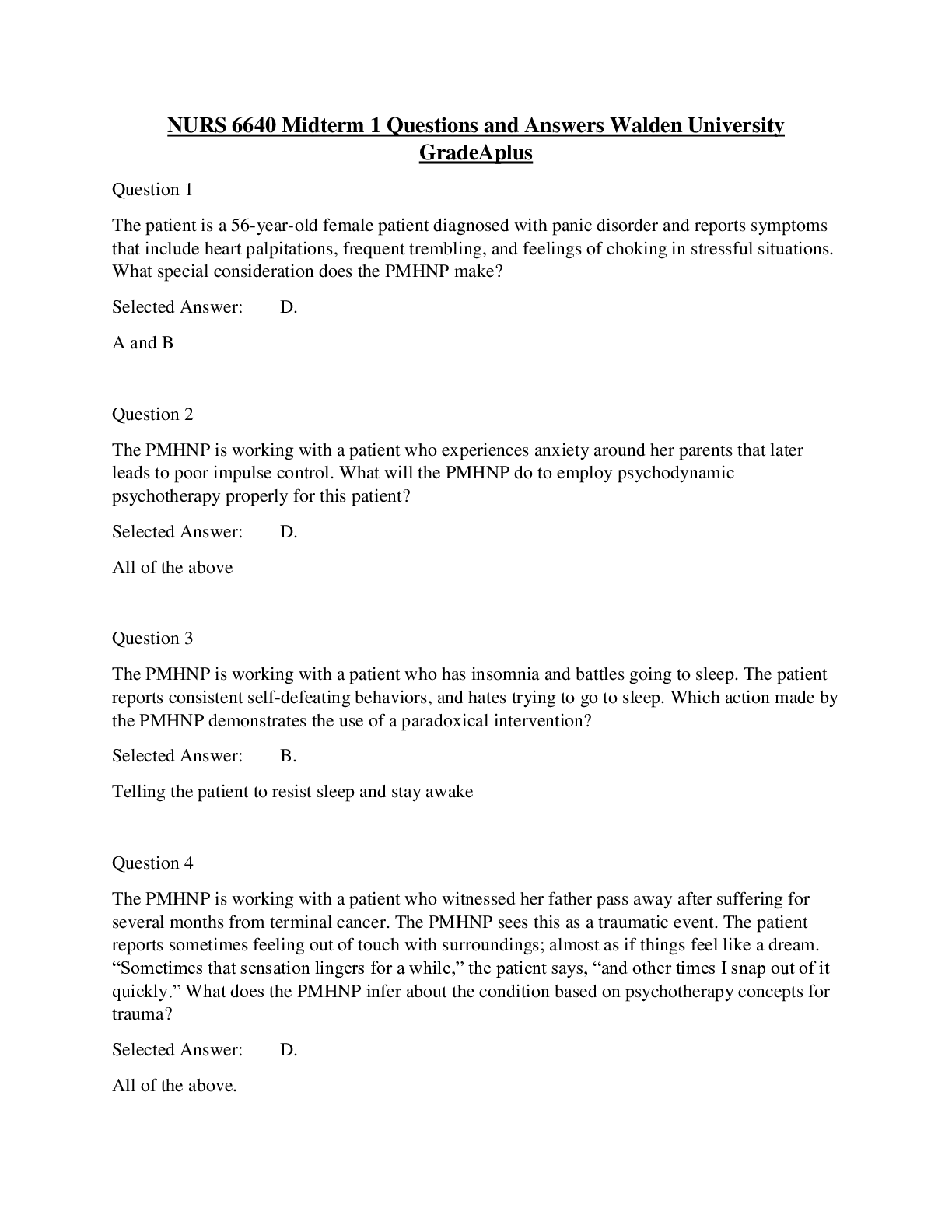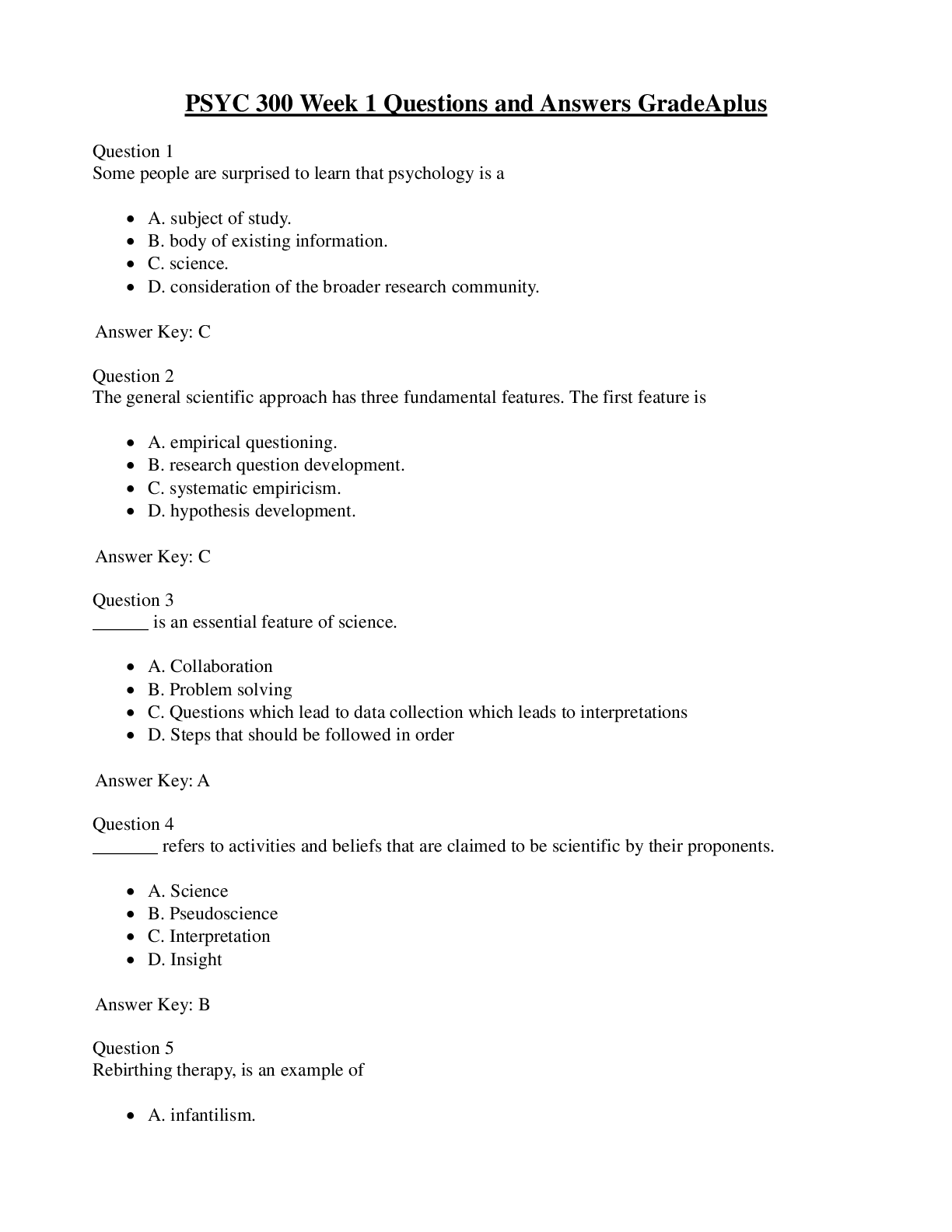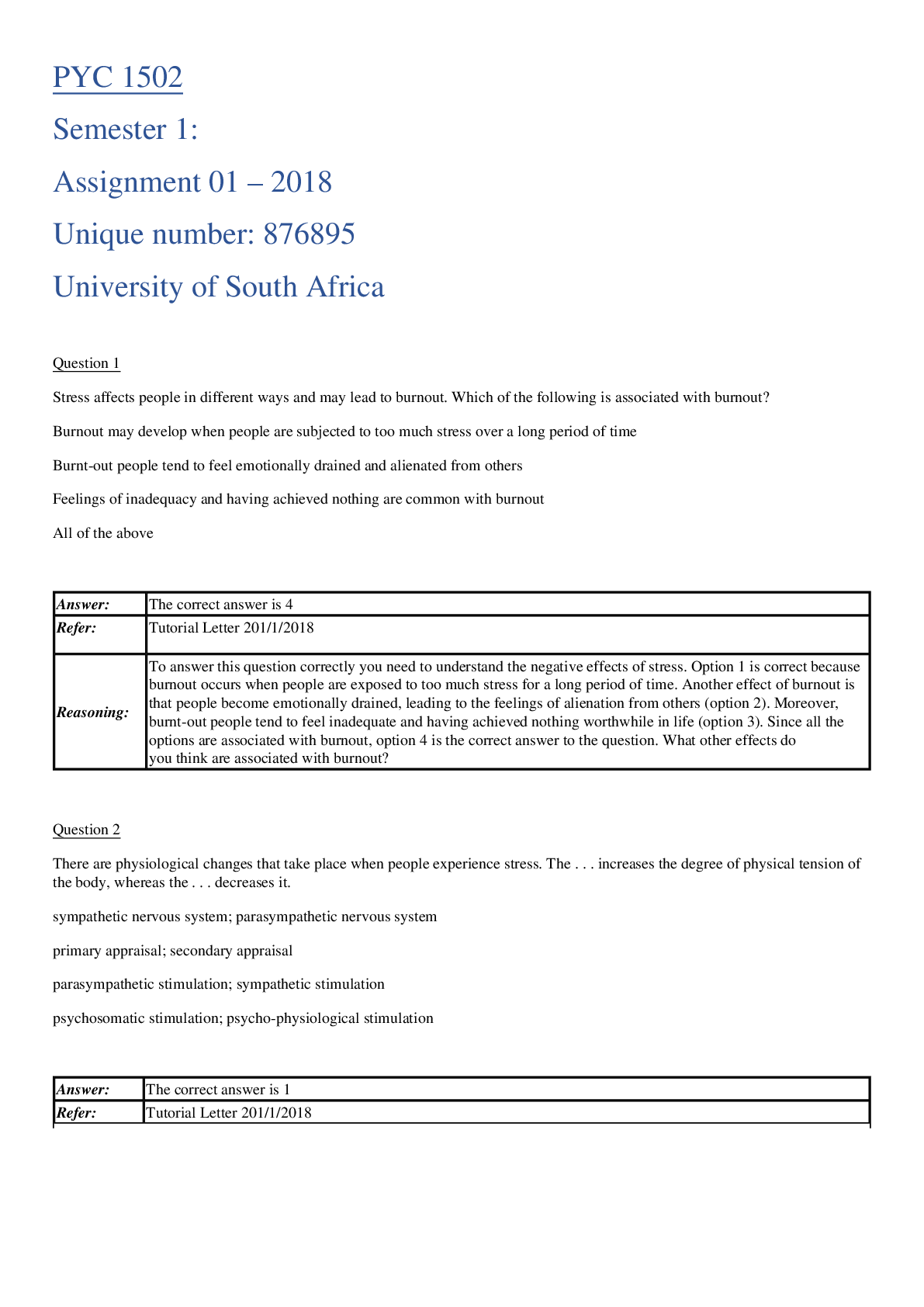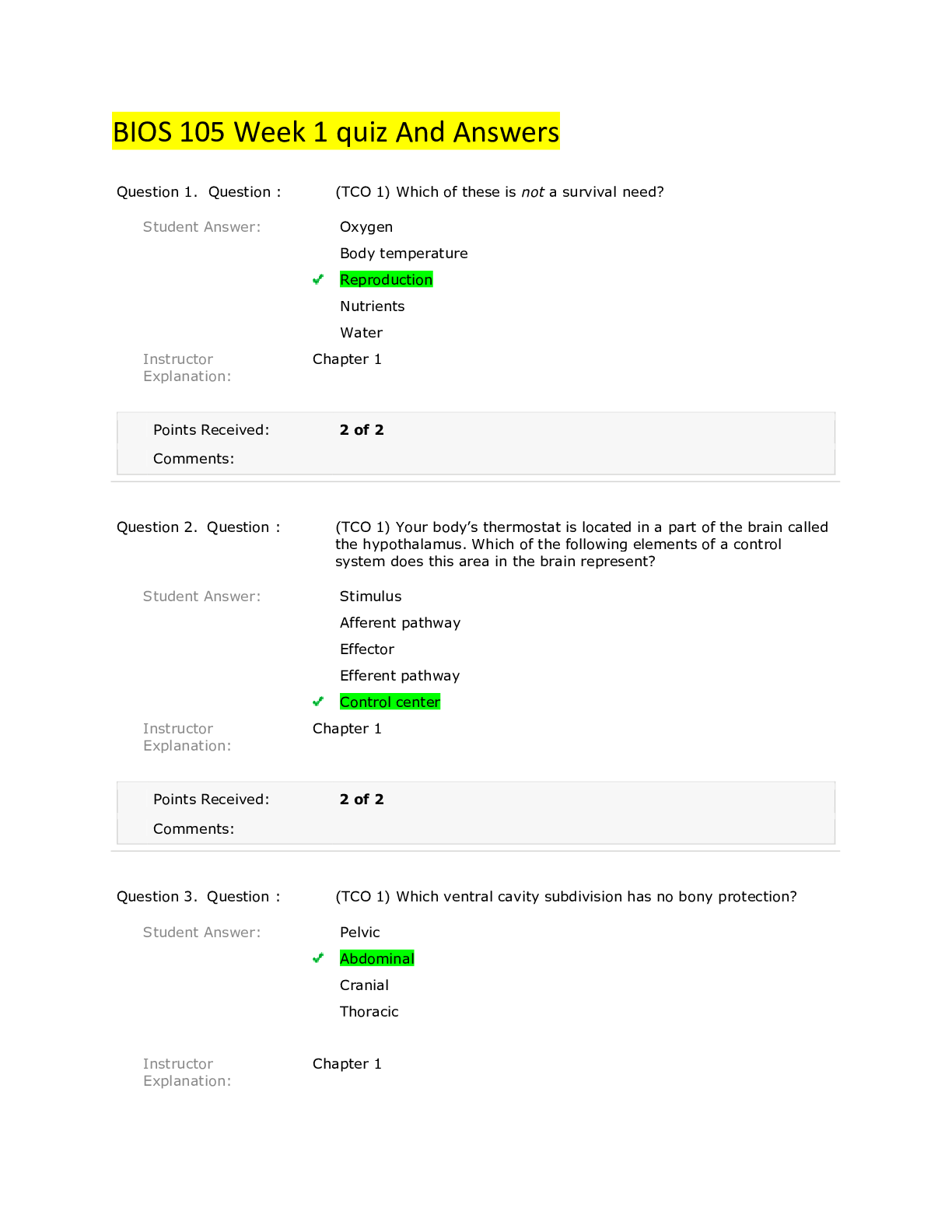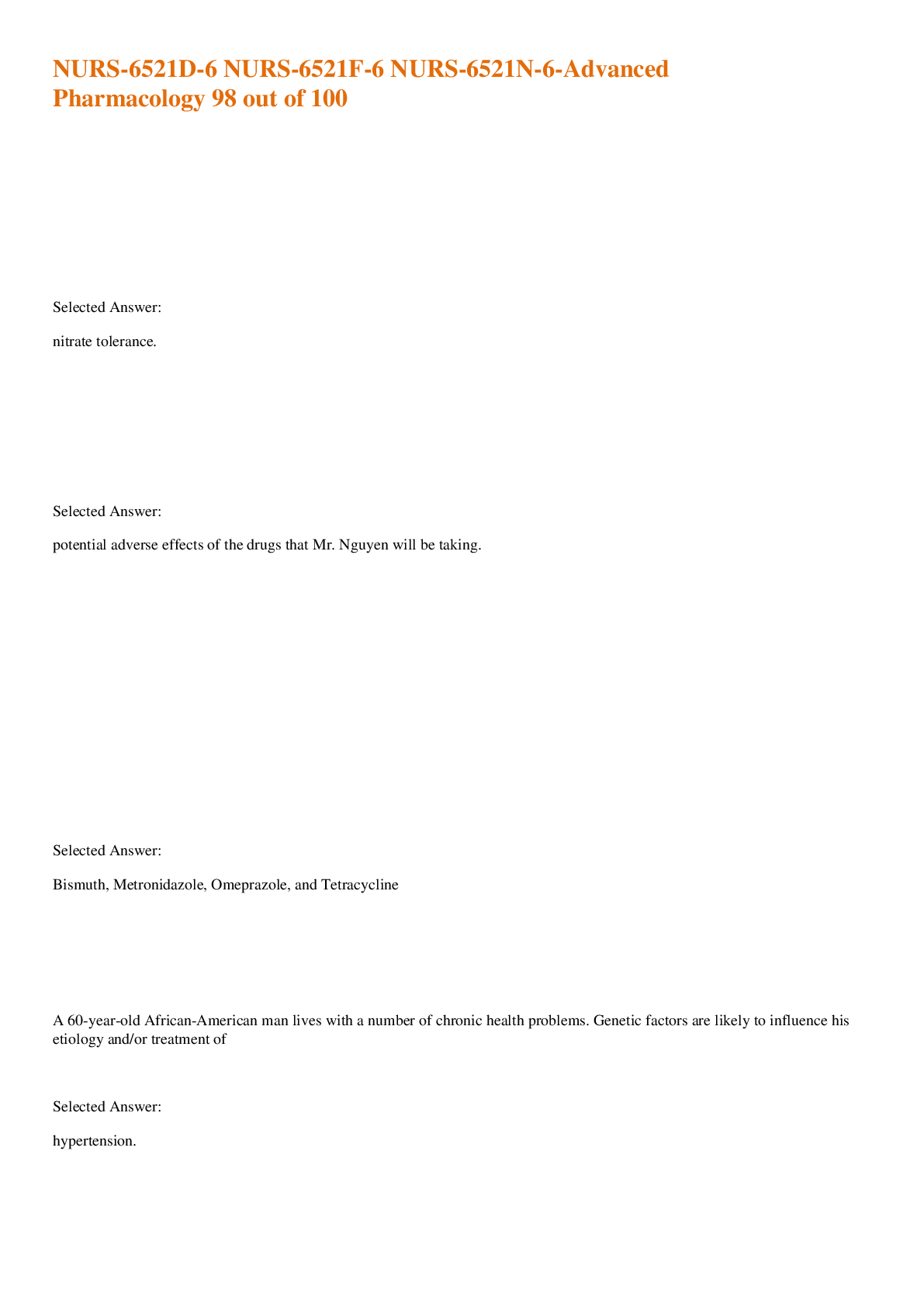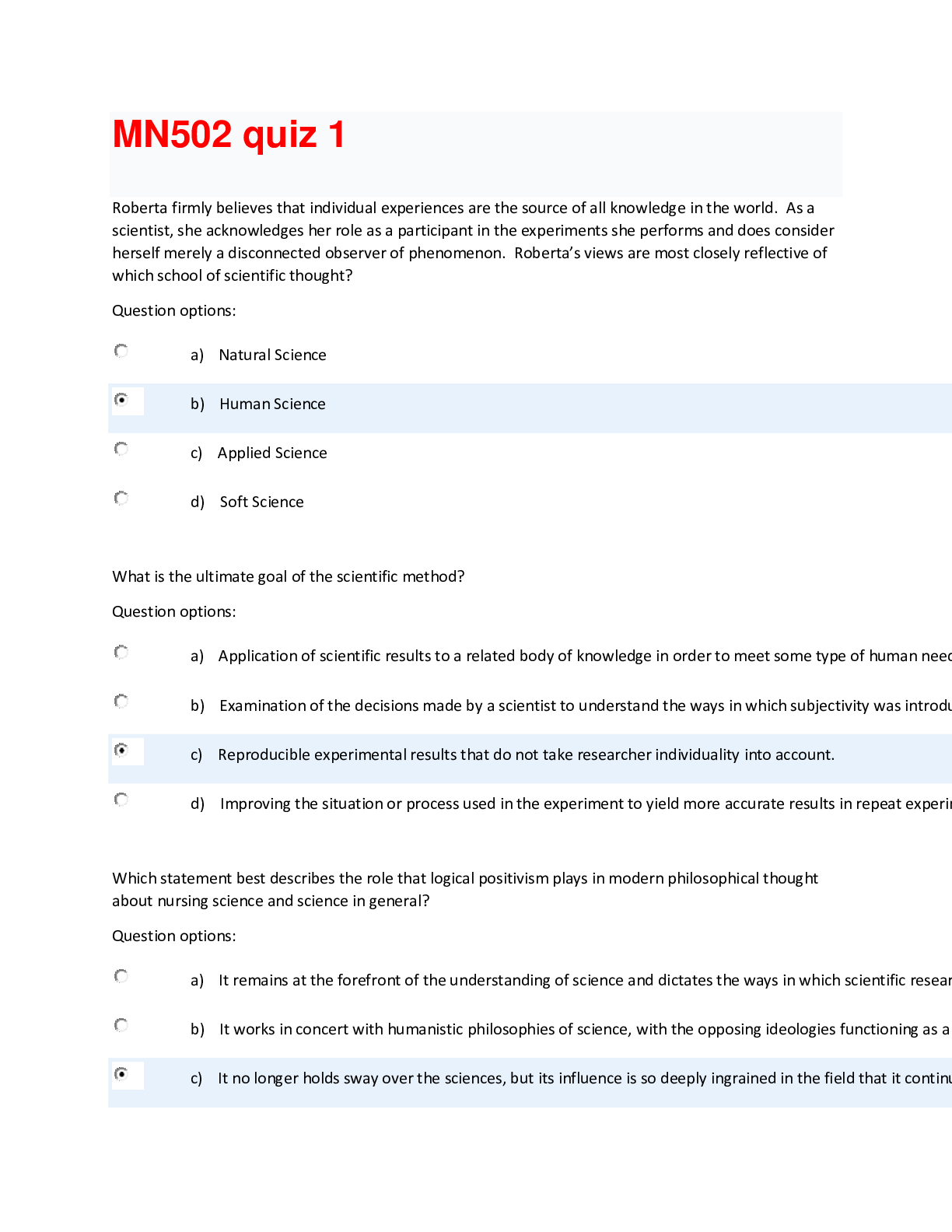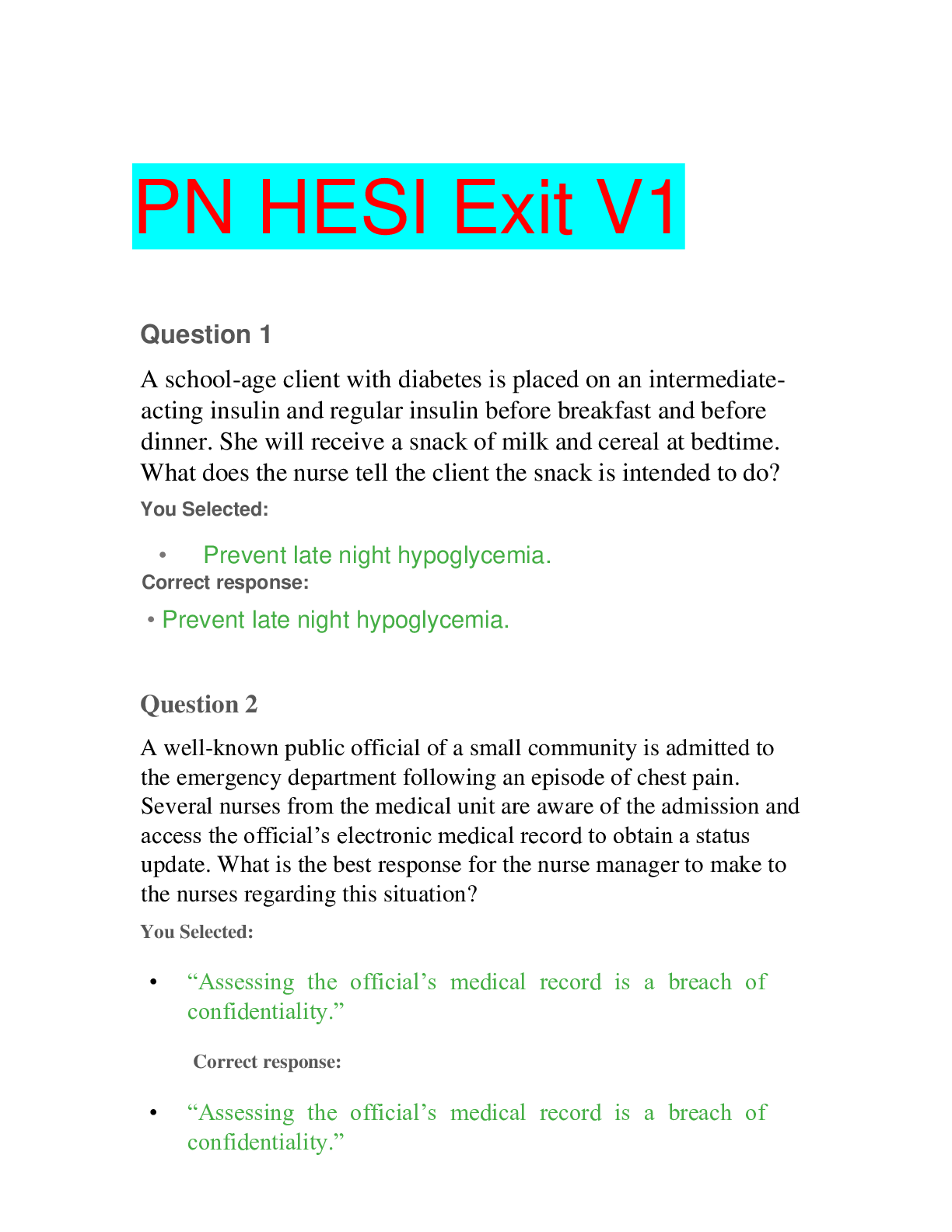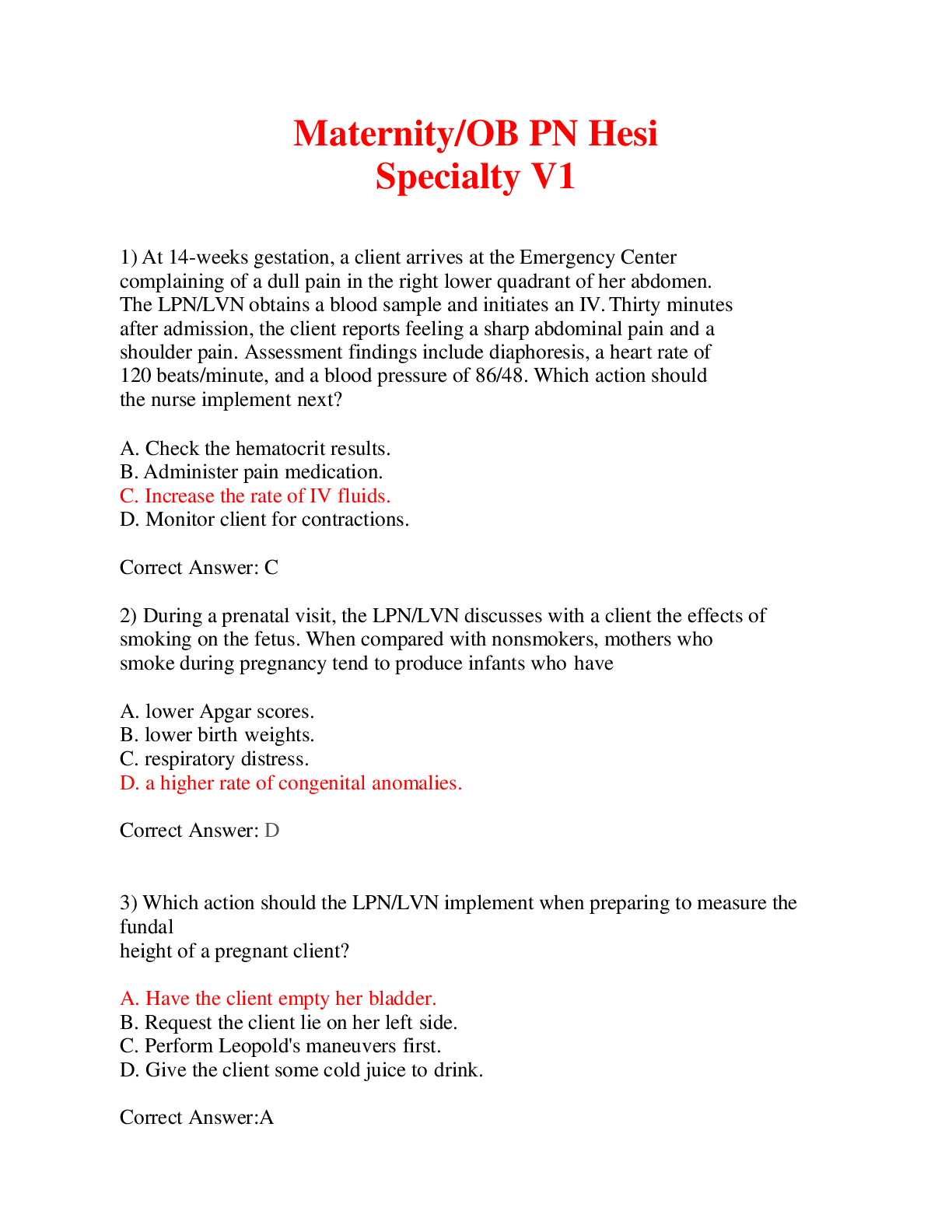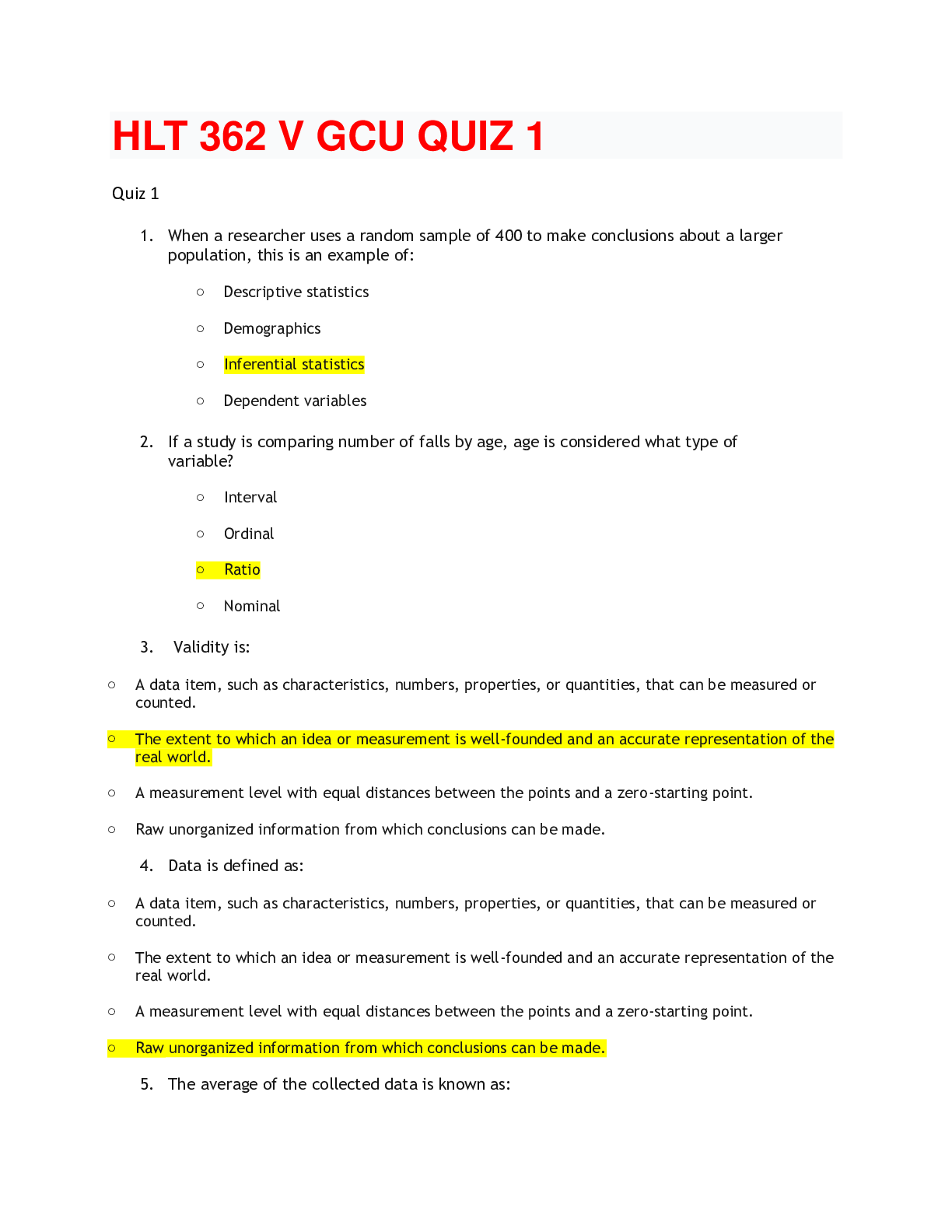Criminology Exam 1 Questions and Answers (100% solved correctly)
Document Content and Description Below
Criminology Exam 1 Criminology Exam 1 Questions and Answers (100% solved correctly) Criminology The scientific study of the nature, extent, cause, and control of criminal behavior. dev... iant behavior Actions that depart from the social norm. Some are considered criminal, others merely harmless aberrations. criminal justice System made up of the agencies of social control, such as police departments, courts, and correctional institutions that handle criminal offenders. criminological enterprise The various subareas included within the scholarly discipline of criminology, which, taken as a whole, define the field of study. valid measure Measure that actually measures what it purports to measure, measure that is factual. reliable measure A measure that produces consistent results from one measurement to another. victim precipitated homicide Refers to those killings in which the victim is a direct, positive precipitator of the incident. white collar crime Illegal acts that capitalize on a person's status in the marketplace. May include theft, embezzlement, etc. penology Subarea of the criminology that focuses on the correction and control of criminal offenders. rehabilitation Treatment of criminal offenders that is aimed at preventing future criminal behavior. mandatory sentences A statutory requirement that a certain penalty shall be carried out in all cases of conviction for a specified offense or series of offenses. victimology Study of the victim's role in criminal events. precipitation The thought pattern of the victim about what they did to contribute to their own victimization. classical criminology Theoretical perspective suggesting that people choose to commit crime and that crime can be controlled if potential criminals fear punishment. positivism Branch of social science that uses the scientific method of the natural sciences and suggests that human behavior is a product of social, biological, psychological, or economic forces that can be empirically measured. sociological criminology Based on the work of Emile Durkheim that focuses on the relationship between social factors and crime. anomie Lack of norms or clear social standards. Because of rapidly shifting moral values, the individual has few guides to what is socially acceptable. socialization Process of human development and enculturation. Socialization is influenced by key social processes and institutions. conflict theory The view that human behavior is shaped by interpersonal conflict and that those who maintain social power will use it to further their own ends. critical criminology Crime is a product of the capitalist system. rational choice theory The view that crime is a function of a decision-making process in which the would-be offender weighs the potential costs and benefits of an illegal act. trait theory The view that criminality is a product of abnormal biological or psychological traits. social structure theory Criminality is a function of people's interactions with various organizations, institutions, and processes in society. [Show More]
Last updated: 2 years ago
Preview 1 out of 21 pages
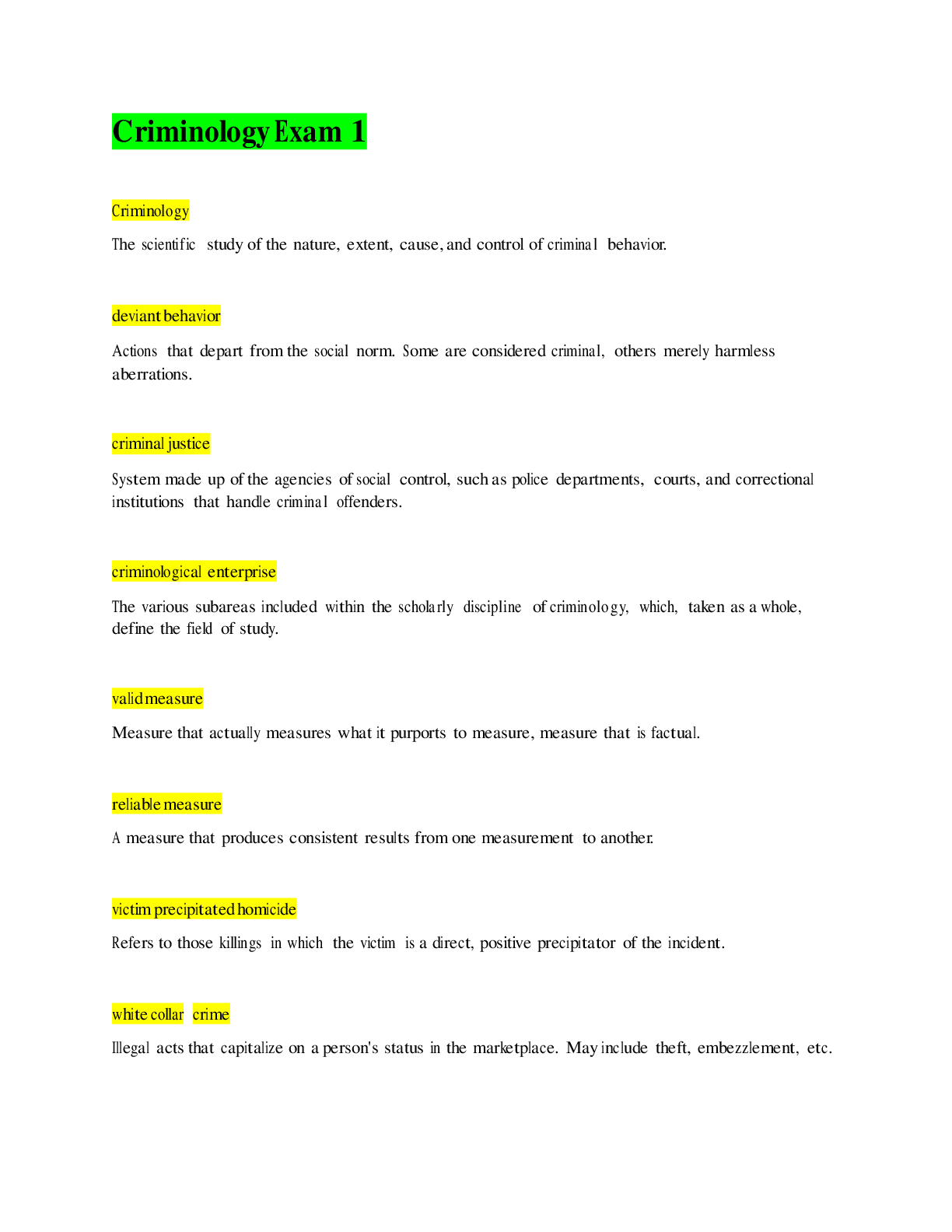
Buy this document to get the full access instantly
Instant Download Access after purchase
Buy NowInstant download
We Accept:

Reviews( 0 )
$4.00
Can't find what you want? Try our AI powered Search
Document information
Connected school, study & course
About the document
Uploaded On
Aug 21, 2022
Number of pages
21
Written in
Additional information
This document has been written for:
Uploaded
Aug 21, 2022
Downloads
0
Views
73

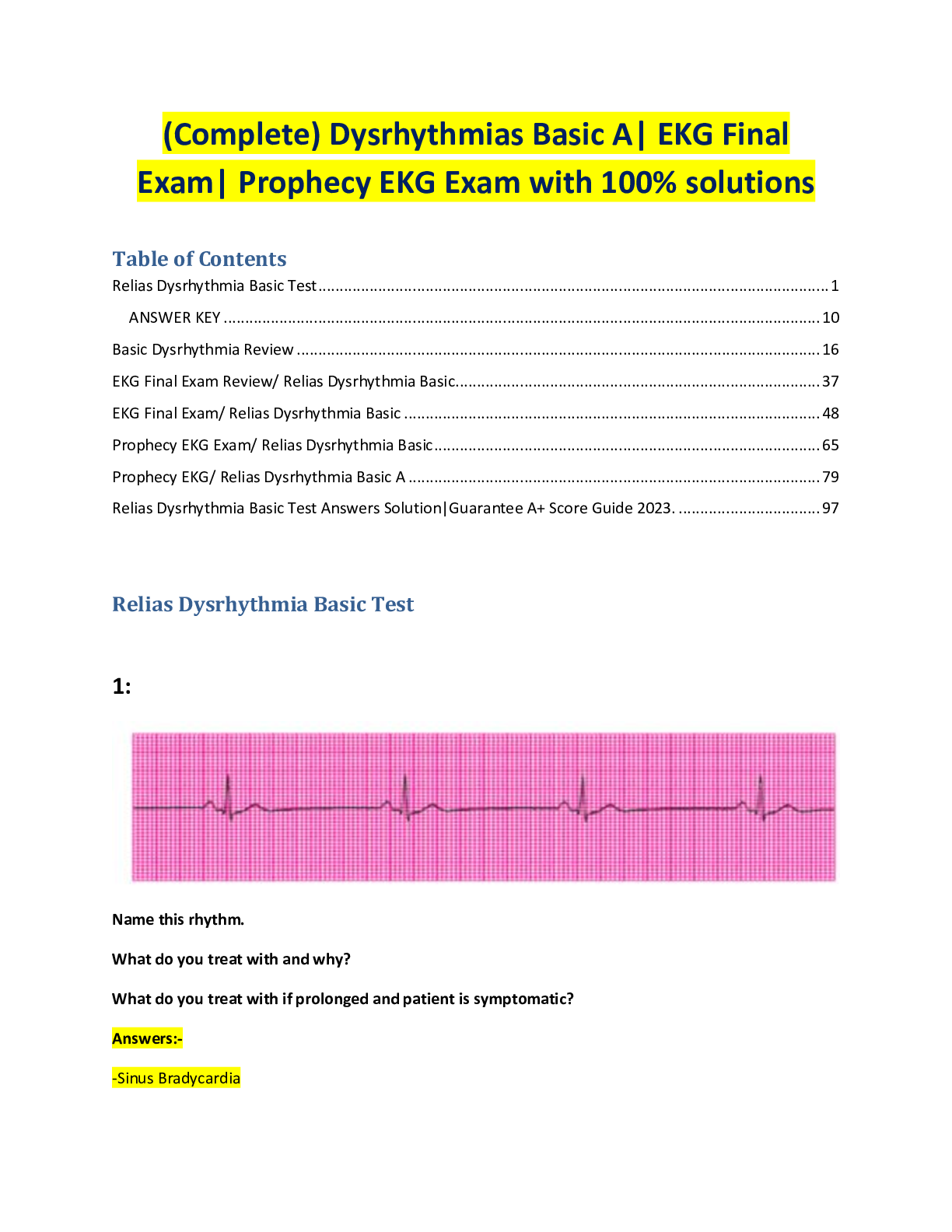

.png)









